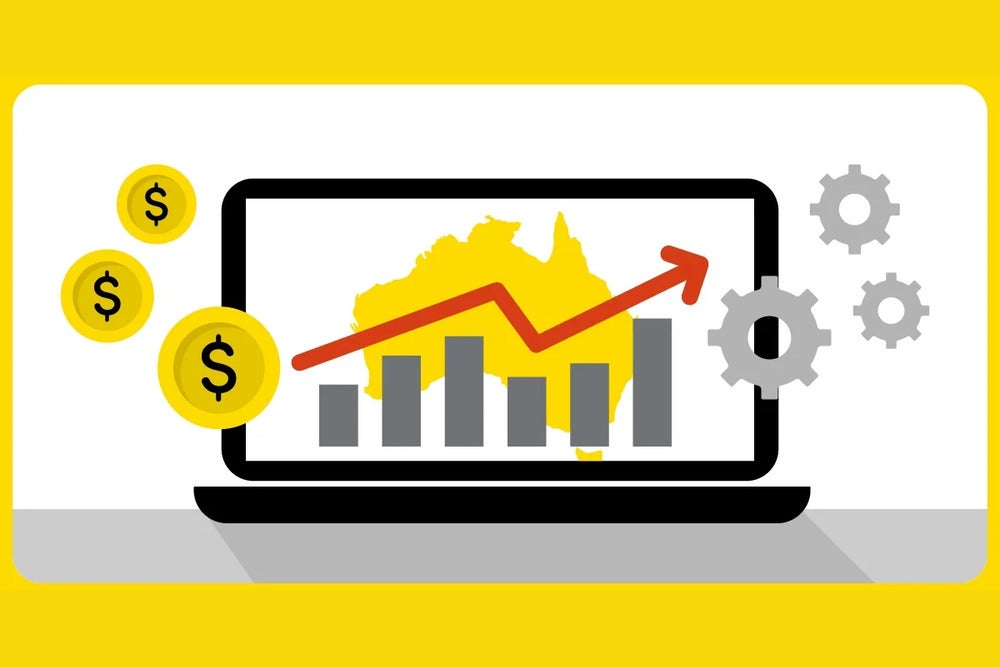Women in finance: Current and future perspectives

As one of the most influential industries globally, the finance industry is responsible for allocating resources, managing risk and creating great opportunities for businesses and individuals.
To remain effective, however, it must be diverse and inclusive. And that means giving women in finance a voice and a seat at the table.
Though women have made great strides in the finance industry, they still face unique challenges and opportunities. But they’re nevertheless an integral and essential part of the sector.
Find out what opportunities and challenges lie ahead in your finance career and how UNSW Online can help ensure the industry recognises your unique talents.
The current state of play for women in the finance world
Women have worked in finance since time immemorial, but they’ve only recently been recognised as a significant force in developing this increasingly important economic sector.
Once, women heavily dominated administrative and support roles in finance because those were the only positions they were offered. However, they’ve been slowly gaining ground and today hold a broad range of positions across the world of finance, including working as investment bankers, financial analysts, and accountants.
Despite these gains, they still face significant challenges.
Women in finance: the challenges
Women make up just over a third of the global workforce in the finance and insurance industries, yet only hold about 22 per cent of all finance jobs worldwide.
Australia is no different when it comes to the gender gap. Workplace Gender Equality Agency (WGEA) data shows the financial services sector comprises 52 per cent women and 48 per cent men. However, women hold only 13 per cent of CEO positions, 28 per cent of Heads of Business, and 33 per cent of executives and general managers.
These numbers are concerning, and they underscore the need for more women in the industry.
- The gender pay gap. This is alive and well in Australia. According to Workplace Gender Equality Agency data, financial and insurance services have a pay gap of 26.1 per cent in Australia, making it one of the "worst offenders" when it comes to industries with pay gaps. Many factors contribute to this gap, but one of the most important factors is that women aren’t often given the same opportunities as men. This is especially true in the finance industry where they’re often passed over for promotions or given less responsibility than their male counterparts.
- Lack of diversity among senior leadership. According to a study by Credit Suisse, women make up just 24 per cent of senior positions in the finance industry. Diversity issues lead to a lack of career advancement opportunities and a failure to understand female clients’ needs properly.
- Gender discrimination. Whether unequal access to opportunities or lower pay, gender discrimination can negatively affect a company’s success. Women of colour are especially likely to face discrimination. A survey conducted by the advocacy group Women of Colour Australia in 2021 found that almost 60 per cent of women of colour who responded had experienced discrimination in the workplace. To combat this, women need to be aware of their rights and pursue opportunities to advance their careers.
Here’s why we need more women in finance
Women have an essential role to play in the industry’s future. Here are just a few benefits of having more women in finance positions:
- Diverse perspectives. Women bring a unique perspective to the table, which can be extremely valuable in finance. Diverse perspectives can help companies make better decisions, avoid risks and find new opportunities.
- Improved performance. Studies show companies with more women in senior positions tend to outperform their rivals. For example, a study by McKinsey found that companies that place women in top management positions are 15 per cent more likely to generate higher financial returns than those who don’t.
- Workplaces can better attract and retain talent. Workplaces that are appealing to men and women alike can access a larger number of talented prospective employees. These types of workplaces tend to offer various benefits that support gender equality, such as flexible working arrangements, support for employees with caring responsibilities, and gender equality policies.
- A different approach to risk management. Women tend to be more risk-averse than men, which can help with decision-making and more prudent risk management. Women have a different perspective on risk, which can be an asset in an industry that’s all about managing risk. Studies have also suggested that employees tend to stay in these workplaces for longer, as they view the workplace as "fair" and supportive of their needs.
- Sustainable business practices. According to reports, women's leadership is also associated with better climate outcomes and more innovation, including greater transparency about environmental footprints and greenhouse gas emissions.
How to advance your career as a woman in finance
Whether you’re just starting out or already have a foot in the door, there are many opportunities for women in the Australian finance industry right now. They include:
- Working in various finance roles, including accounting, investment banking and wealth management. There are also opportunities to start female-owned and led businesses in the finance industry.
- Add to your qualifications. Consider obtaining a degree in business, economics, applied finance or accounting to add to your skills and build your confidence. Degrees like the Master of Applied Finance can be tailored to your career goals and help you upskill quickly. You can also receive certification from professional organisations such as the CFA Institute or the Chartered Financial Analyst Societies of Australia.
- Joining a professional organisation. There are plenty of female-oriented professional organisations to join, such as the Financial Women’s Association or the Association of Women in Finance. These organisations offer opportunities to network, learn about new developments in finance and connect with other women in the industry.
- Building more diverse networks. Build a more extensive network by attending conferences such as the Women in Banking and Finance events or the Financial Planning Association’s annual congress. You’ll learn about new developments in finance and network with other women in the industry.
Build your confidence so you can thrive in a male-dominated field
So, what’s the bottom line? We need more women in finance - whether they want to become financial analysts, finance managers, CFOs or somewhere in between.
And the good news is there are many ways to make this happen.
On top of the opportunities already mentioned, many initiatives aim to increase gender diversity in the finance industry. Women in Finance, She Loves Data and Girls Who Invest are actively working to increase gender diversity. There are also scholarships and programs available to help more women get into finance.
Take charge of your career and pursue further study in finance
If you’re looking for a career in finance, the Master of Applied Finance program at UNSW could be the right fit for you.
The program delivers a comprehensive education in financial theory and practice so that you can confidently apply, manage and lead financial functions at all business levels. Each student can tailor their studies to suit their career path, as well as build a solid foundation to pursue the Chartered Financial Analyst (CFA) designation.
For more details about how UNSW Online’s Master of Applied Finance can advance your career, visit our website or reach out to our Enrolment team on 1300 974 990.









